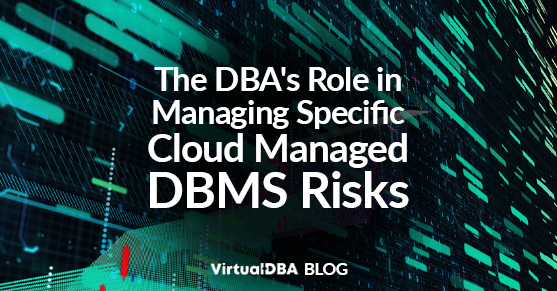As organizations increasingly adopt cloud-based solutions, the role of Database Administrators (DBAs) is evolving. While the core responsibilities remain similar, the specific risks associated with cloud-managed DBMS require a unique skill set and approach. This blog post will explore these risks and the DBA’s role in mitigating them.
Understanding Cloud-Managed DBMS Risks
Cloud-managed Database Management Systems offer several advantages, but they also introduce new risks that DBAs must address:
- Cloud Provider Security: Relying on the security measures implemented by the cloud provider.
- Data Residency and Sovereignty: Ensuring compliance with data location and privacy regulations.
- Access Controls: Managing user access and permissions in a cloud environment.
- Data Encryption: Protecting data both at rest and in transit.
- Incident Response: Collaborating with the cloud provider to address security incidents.
The DBA’s Role in Cloud-Managed DBMS Risk Management
While the DBA’s control over the underlying infrastructure is reduced in a cloud environment, their role in managing data and application performance remains critical. Key responsibilities include:
Cloud Provider Security
- Evaluate provider security: Stay informed about the cloud provider’s security controls and certifications.
- Collaborate with security teams: Work with the organization’s security team to assess the cloud provider’s security posture.
- Incident response planning: Collaborate in developing incident response plans with the cloud provider.
Data Residency and Sovereignty
- Understand data location: Be aware of where data is stored and processed to ensure compliance with regulations.
- Data mapping: Map data to specific jurisdictions to identify potential risks.
- Work with legal teams: Collaborate with legal teams to address data residency and sovereignty concerns.
Access Controls
- Define access roles: Define clear access roles and permissions based on job functions.
- Implement least privilege principle: Grant users only the necessary permissions to perform their tasks.
- Monitor access activities: Regularly review and analyze access logs to identify anomalies.
Data Encryption
- Understand encryption methods: Familiarize yourself with different encryption methods and their strengths.
- Work with security teams: Collaborate with security teams to implement appropriate encryption standards.
- Key management: Ensure proper management of encryption keys.
Incident Response
- Develop response plans: Participate in developing incident response plans for database-related incidents.
- Test response procedures: Conduct regular incident response simulations.
- Collaborate with cloud provider: Work closely with the cloud provider during incident response activities.
How XTIVIA Virtual-DBA Can Help
XTIVIA’s Virtual-DBA team provides specialized expertise in managing cloud-managed DBMS environments. Our services include:
- Cloud migration planning: Assisting organizations in migrating databases to the cloud.
- Cloud security assessment: Evaluating the security posture of cloud-based databases.
- Performance optimization: Improving database performance in cloud environments.
- Data protection and recovery: Implementing robust data protection and recovery strategies.
- Compliance support: Helping organizations meet industry-specific regulations.
By partnering with XTIVIA, organizations can leverage our expertise to effectively manage the complexities of cloud-managed DBMS and mitigate associated risks.
For more info, please contact us!

